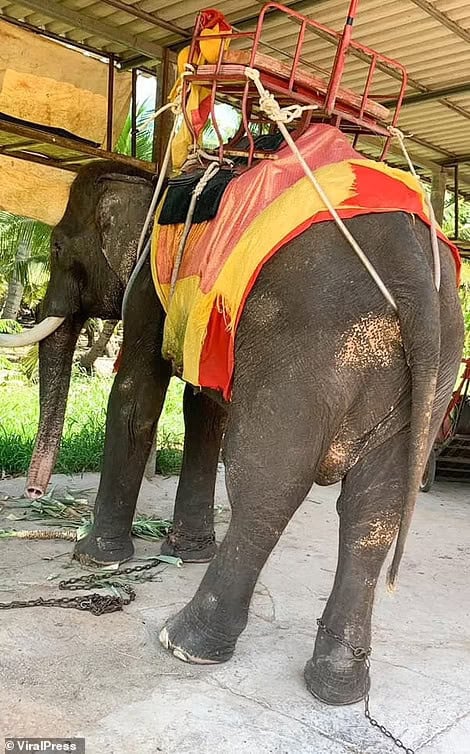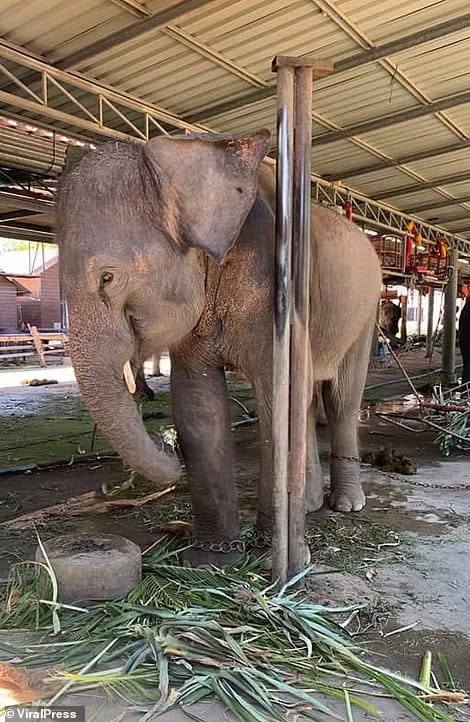In a distressing discovery, exhausted elephants found at a Thai animal camp were reportedly so weakened chains around their necks were supporting them. This troubling situation was revealed by tourists at Chang Puak Camp in Ratchaburi province on June 15.
The three affected elephants—Plai See Dor Thong Pool, 15, Plai Boon Mee, 15, and Plai Kham Kaew, 45—were severely neglected.

They were seen slumped over metal poles, struggling to stand, and unable to move freely. This condition was captured in harrowing video footage and photographs.
The elephants’ plight is thought to be a consequence of the decline in international tourism due to the COVID-19 pandemic, which significantly impacted Thailand’s economy. Tourism, contributing around 20% of the country’s GDP, saw a severe downturn during the pandemic.
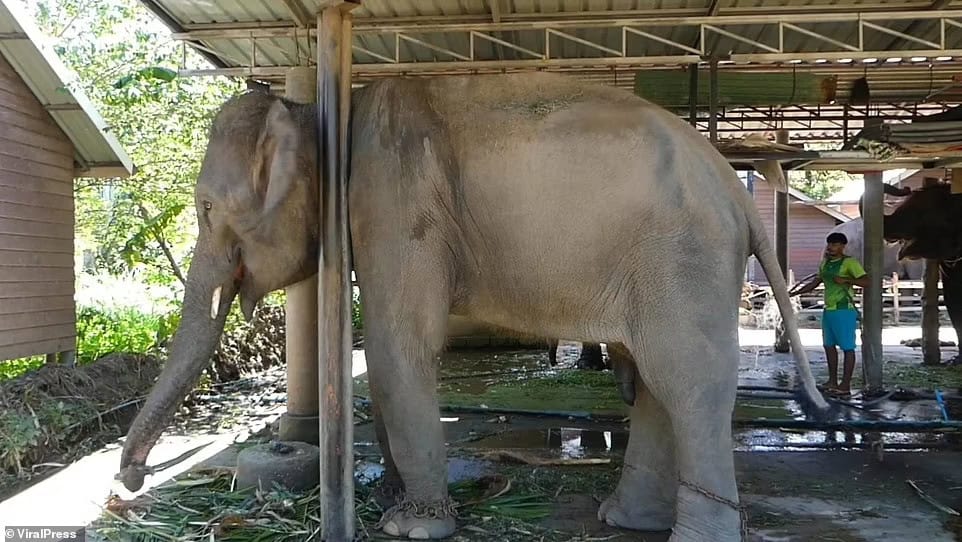
On June 18, the Department of Livestock Development (DLD) intervened after receiving reports about the elephants. Officials removed the chains and conducted health checks before returning the animals to the camp.
A DLD spokesperson stated, “We investigated the camp and found the elephants restrained with chains. We are investigating why this was done and have warned the camp management that such practices must not continue. Failure to comply could result in charges under our animal protection laws.”
Authai Saetang, a regional officer with the DLD, added, “We removed the chains and ensured a veterinarian examined the elephants.
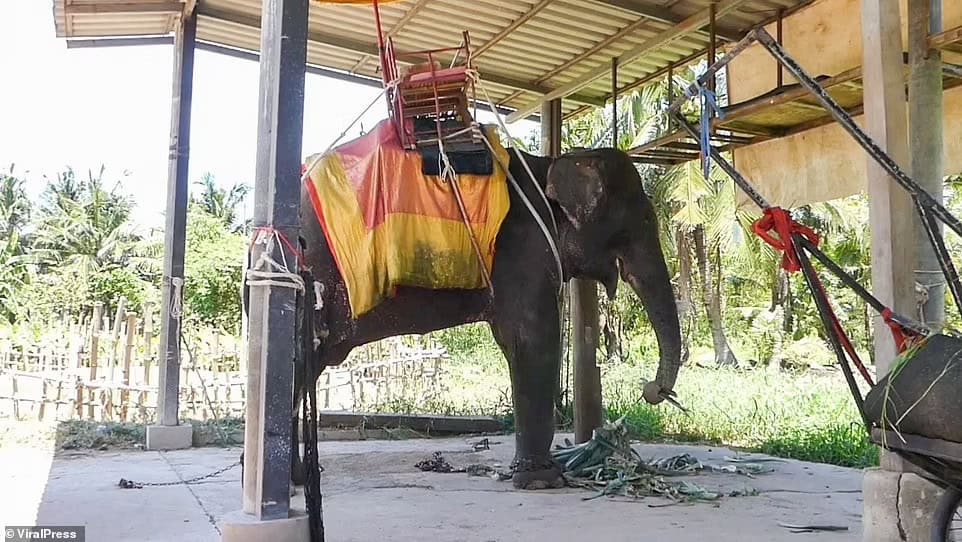
The camp owner has been warned and has agreed to improve conditions. We will conduct follow-up inspections to ensure compliance and take further action if necessary.”
Camp officials and mahout Thavorn Parnkaew offered an apology and explained that chaining was temporary due to a shortage of mahouts following layoffs during the pandemic.
He assured that measures would be taken to prevent such practices in the future, stating, “Due to financial difficulties, we had to lay off some mahouts, which led to a lack of personnel to care for the elephants properly. We understand this was wrong and will ensure that such conditions are not repeated.”
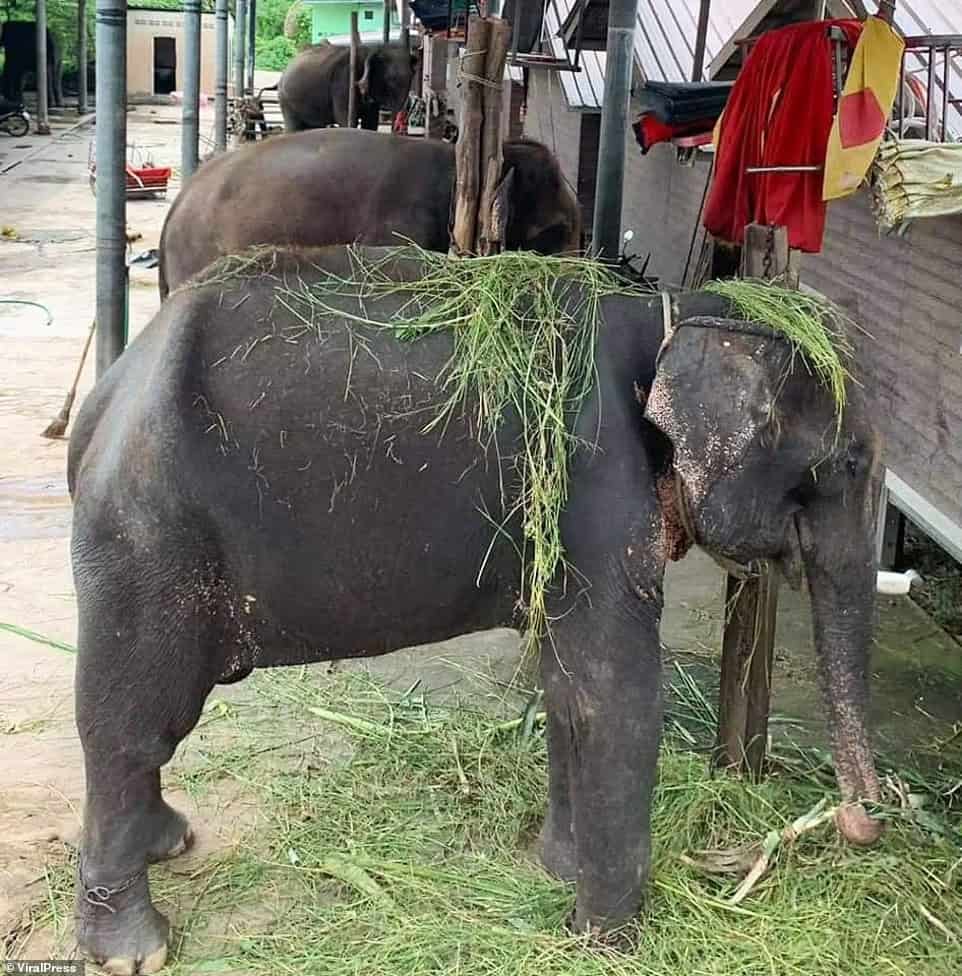
Animal rights groups, including People for the Ethical Treatment of Animals (PETA), have called for a ban on the use of elephants in tourism.
Jason Barker of PETA criticized the exploitation of elephants and urged their relocation to reputable sanctuaries. “Elephant camps that profit from animal suffering should immediately relocate their elephants to sanctuaries,” Barker said. “The pandemic has highlighted the need to rethink the future of exploiting animals for entertainment.”
In a similar case earlier this year, a starving elephant named Khun Pan was rescued from a tourist camp in Chonburi, Thailand.
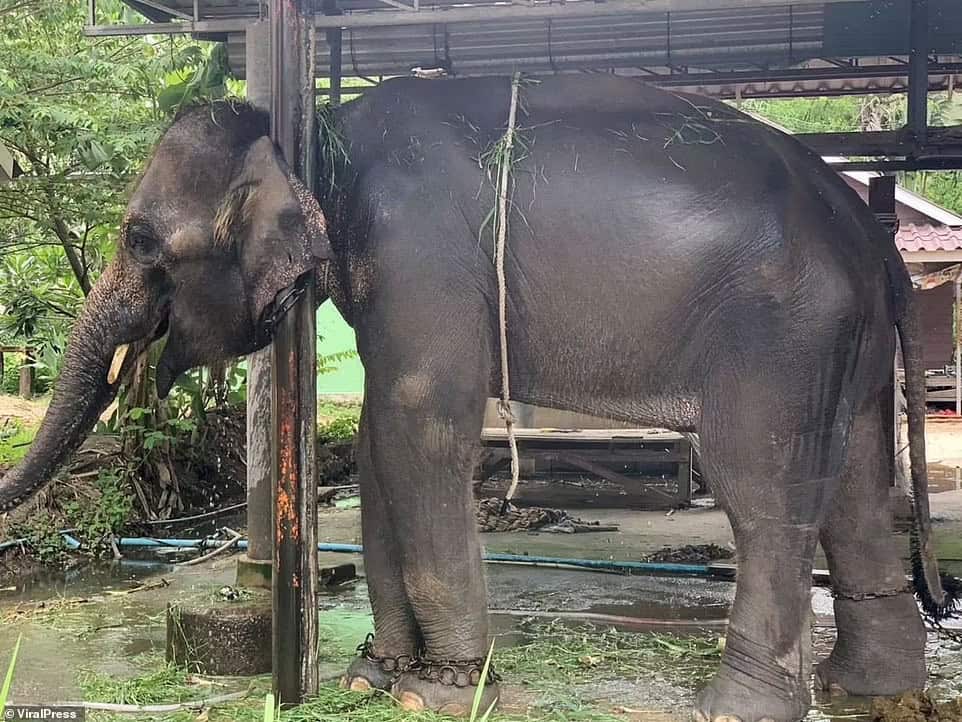
The 50-year-old elephant, left without proper care during the pandemic, was found emaciated with visible bones and sores. Medics intervened just in time to save Khun Pan, providing critical care and rehydration.
Thailand is home to approximately 2,000 wild elephants and an equal number in captivity. The COVID-19 restrictions have significantly impacted these animals, affecting their care and well-being.
Laws in Thailand protect elephants, with penalties including up to three years in prison and fines of 1,000 baht (approximately £25) for harming them.
